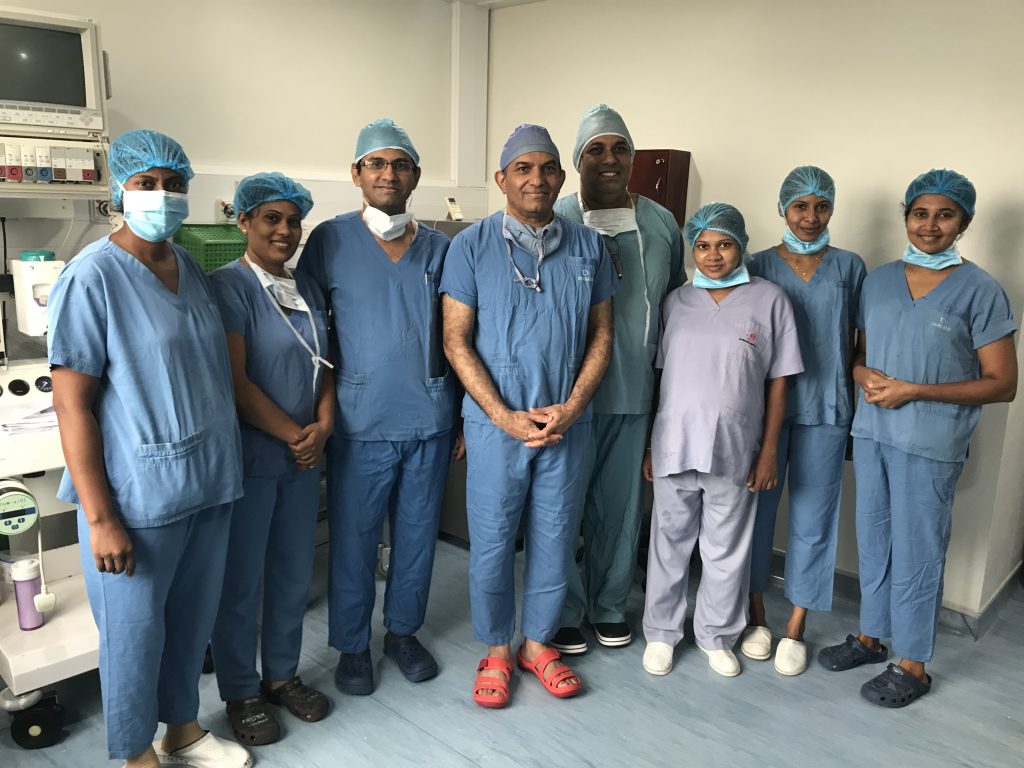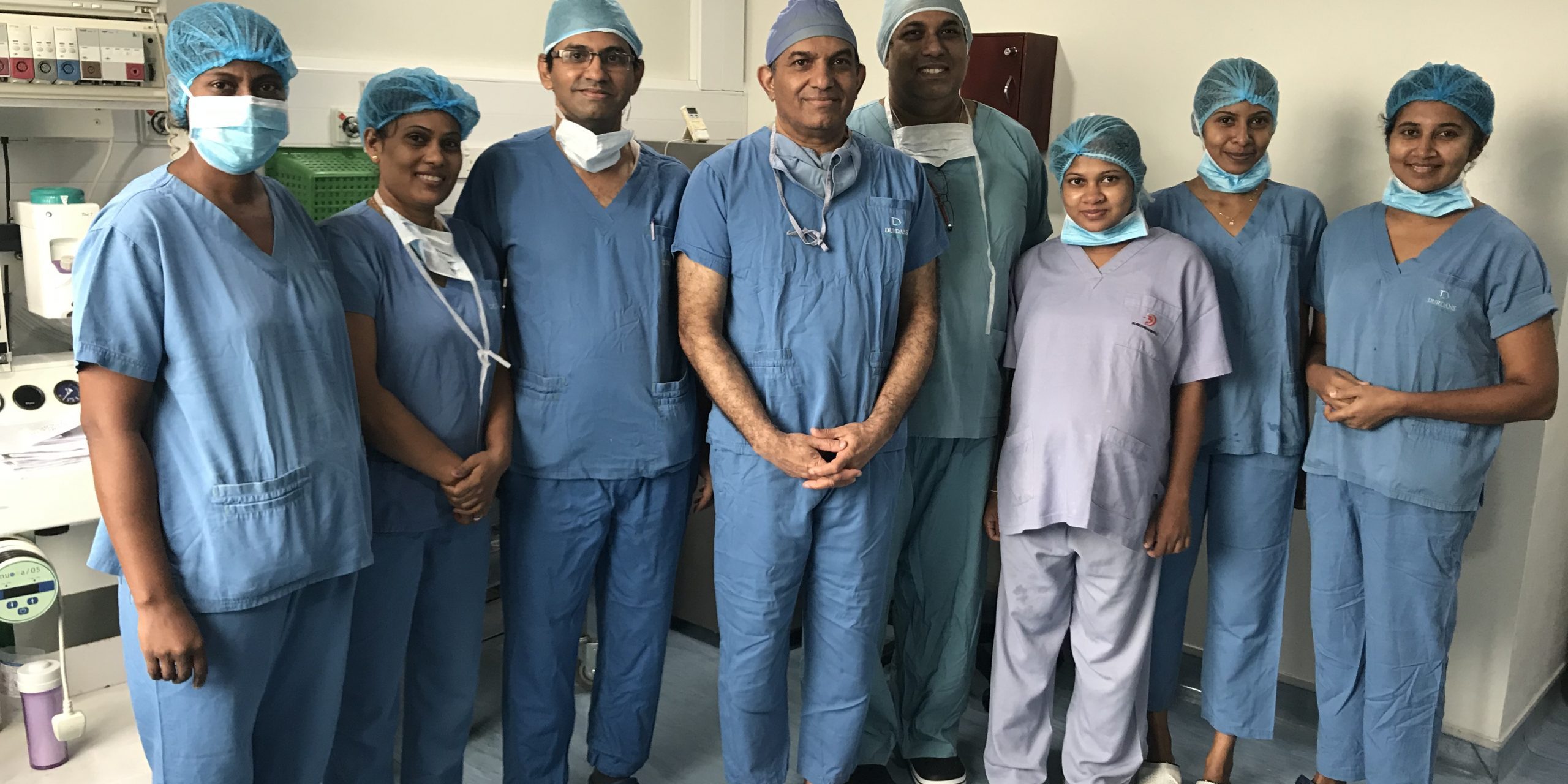
Durdans Heart Centre successfully performed Re-do (re-operative) Minimally Invasive Direct Coronary Artery Bypass Surgery (Re-do CABG) on a cardiac patient who had gone through a bypass surgery 18 years ago. This is also the first time that a“re-do” MIDCAB surgery through a small incision on the left side of the chesthas beenperformed in Sri Lanka.
Mr. W Karunaratne had his first bypass surgery about18 years ago. It was performed in India and he was able to live a normal life until recently when he started presentingwith symptoms that were a cause for concern. After consulting a cardiologist, an angiogram was performed and itrevealed a critically calcified left main coronary arterystenosis with triple vessel disease which is a life-threatening condition.
When the patient arrived at Durdans Heart Centre on the Cardiologists recommendation, he had already suffered aheart attack recently and only onebypassfrom the surgery done previously was functioning. His ejection fraction (the percentage of blood leaving the heart every time it contracts) was down to 30%. By giving medication right up until it was time to go for surgery, itwas brought up to around 40 -45%. Stent placement was out of the question due to the high number of blocks, leaving bypass as the only option, which would carry a considerable amount of risk because of the bypass done previously.
It was a lengthy surgery that lasted for about 9 hours beginning at 7.30 a.m. Due to the precarious nature of the redo MIDCAB, the cardiologist’s recommendation had been to do one bypass arterial graft. However,by using the “Y” technique the surgeon was able to perform two grafts. The presence of a strong cardiac team with resident anaesthetist DrAnand Ragunathan led to a successful outcome.
DrKesavaDev, Resident Cardiothoracic surgeon at Durdans Hospital said, “This (Y technique) is difficult to do in a re-do case because of the presence of adhesions from the previous surgery but we were able to do it successfully and bring his heart function to 55% which is almost normal and achieve all this without the need for a blood transfusion”.
The patient, Mr Karunaratne said, “After the surgery I was sent to the ICU and I was conscious by 9 p.m. I didn’t feel as if I had been in surgery. I touched my chest but couldn’t feel anything. Then I touched my leg, because I remembered that in the previous bypass surgery done in India, veins were taken from my left leg, but there was nothing. I thought maybe the surgery had been stopped due to its risky nature. I inquired of staff and they told me,‘Mr Karunaratne your surgery is over, try and get some sleep’. It was hard for me to believe.”
Durdans Heart Centre is the leader in Cardiac Care where the presence of comprehensive heart teams and in-house anesthetists led by resident cardiothoracic surgeons enable high-risk and breakthrough procedures to be performed without hesitation.













